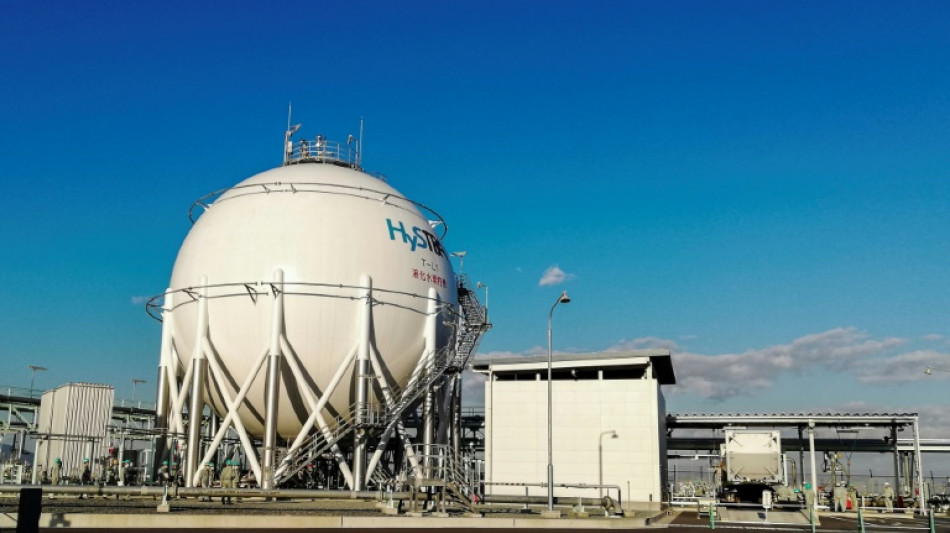
-
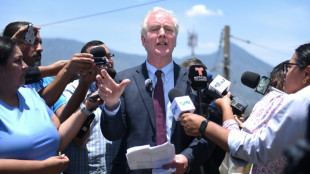 El Salvador rejects US senator's plea to free wrongly deported migrant
El Salvador rejects US senator's plea to free wrongly deported migrant
-
Newcastle thrash Crystal Palace to go third in Premier League

-
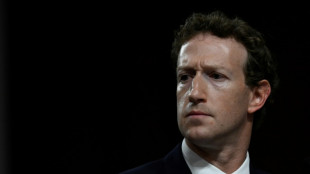 Zuckerberg denies Meta bought rivals to conquer them
Zuckerberg denies Meta bought rivals to conquer them
-
Starc stars as Delhi beat Rajasthan in Super Over

-
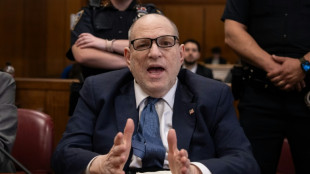 Weinstein asks to sleep in hospital, citing prison 'mistreatment'
Weinstein asks to sleep in hospital, citing prison 'mistreatment'
-
Amorim asks McIlroy to bring Masters magic to Man Utd

-
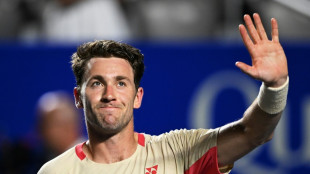 Ruud keeps Barcelona Open defence on course
Ruud keeps Barcelona Open defence on course
-
Trump tariffs could put US Fed in a bind, Powell warns

-
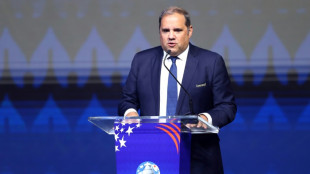 CONCACAF chief rejects 64-team World Cup plan for 2030
CONCACAF chief rejects 64-team World Cup plan for 2030
-
Putin praises Musk, compares him to Soviet space hero
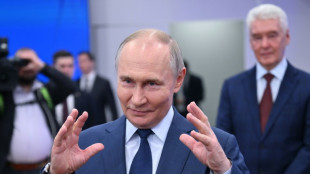
-
 Son to miss Spurs' Europa League trip to Frankfurt
Son to miss Spurs' Europa League trip to Frankfurt
-
US senator in El Salvador seeking release of wrongly deported migrant

-
 Trump tariffs could put the US Fed in a bind, Powell warns
Trump tariffs could put the US Fed in a bind, Powell warns
-
US judge says 'probable cause' to hold Trump admin in contempt

-
 India opposition slams graft charges against Gandhis
India opposition slams graft charges against Gandhis
-
Nate Bargatze to host Emmys: organizers

-
 US Fed Chair warns of 'tension' between employment, inflation goals
US Fed Chair warns of 'tension' between employment, inflation goals
-
Trump touts trade talks, China calls out tariff 'blackmail'

-
 US judge says 'probable cause' to hold govt in contempt over deportations
US judge says 'probable cause' to hold govt in contempt over deportations
-
US eliminates unit countering foreign disinformation

-
 Germany sees 'worrying' record dry spell in early 2025
Germany sees 'worrying' record dry spell in early 2025
-
Israel says 30 percent of Gaza turned into buffer zone

-
 TikTok tests letting users add informative 'Footnotes'
TikTok tests letting users add informative 'Footnotes'
-
Global uncertainty will 'certainly' hit growth: World Bank president

-
 EU lists seven 'safe' countries of origin, tightening asylum rules
EU lists seven 'safe' countries of origin, tightening asylum rules
-
Chelsea fans must 'trust' the process despite blip, says Maresca

-
 Rebel rival government in Sudan 'not the answer': UK
Rebel rival government in Sudan 'not the answer': UK
-
Prague zoo breeds near-extinct Brazilian mergansers

-
 Macron to meet Rubio, Witkoff amid transatlantic tensions
Macron to meet Rubio, Witkoff amid transatlantic tensions
-
WTO chief says 'very concerned' as tariffs cut into global trade

-
 Sports bodies have 'no excuses' on trans rules after court ruling: campaigners
Sports bodies have 'no excuses' on trans rules after court ruling: campaigners
-
Zverev joins Shelton in Munich ATP quarters
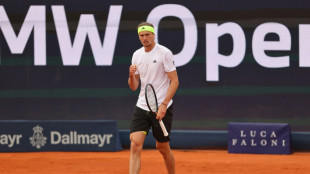
-
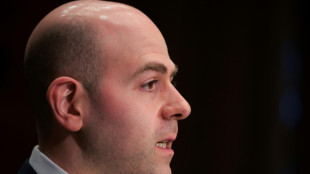 The Trump adviser who wants to rewrite the global financial system
The Trump adviser who wants to rewrite the global financial system
-
US senator travels to El Salvador over wrongly deported migrant

-
 UN watchdog chief says Iran 'not far' from nuclear bomb
UN watchdog chief says Iran 'not far' from nuclear bomb
-
Trump says 'joke' Harvard should be stripped of funds

-
 Macron vows punishment for French prison attackers
Macron vows punishment for French prison attackers
-
Canada central bank holds interest rate steady amid tariffs chaos
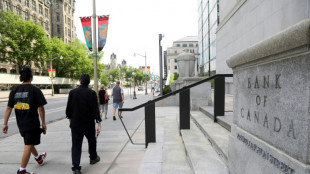
-
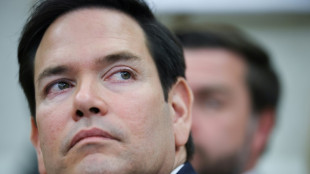 Rubio headed to Paris for Ukraine war talks
Rubio headed to Paris for Ukraine war talks
-
Australian PM vows not to bow to Trump on national interest
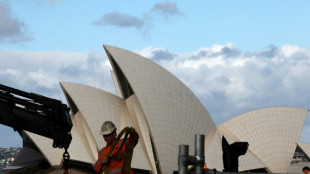
-
 New attacks target France prison guard cars, home
New attacks target France prison guard cars, home
-
Global trade uncertainty could have 'severe negative consequences': WTO chief
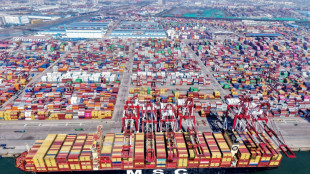
-
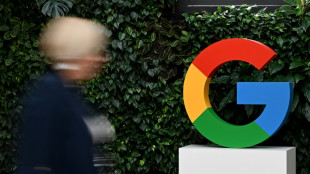 Google facing £5 bn UK lawsuit over ad searches: firms
Google facing £5 bn UK lawsuit over ad searches: firms
-
Onana to return in goal for Man Utd against Lyon: Amorim

-
 Tiktok bans user behind Gisele Pelicot 'starter kit' meme
Tiktok bans user behind Gisele Pelicot 'starter kit' meme
-
'Put it on': Dutch drive for bike helmets
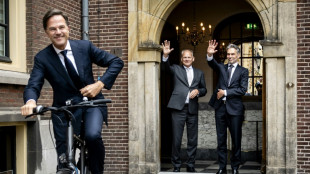
-
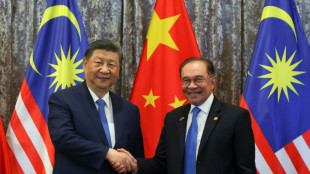 China's Xi meets Malaysian leaders, vows to 'safeguard' Asia allies
China's Xi meets Malaysian leaders, vows to 'safeguard' Asia allies
-
France urges release of jailed Russian journalists who covered Navalny
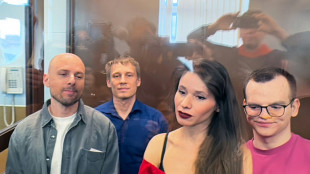
-
 Gabon striker Boupendza dies after 11th floor fall
Gabon striker Boupendza dies after 11th floor fall
-
UK top court rules definition of 'woman' based on sex at birth
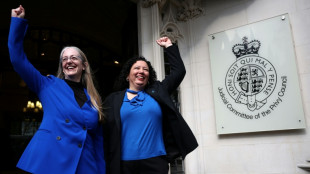

Japan-Australia flagship hydrogen project stumbles
Japan wants to become a hydrogen fuel leader to meet its net-zero goals, but one blockbuster project is hanging in the balance over questions about its climate credentials.
The Hydrogen Energy Supply Chain (HESC) is billed as a billion-dollar attempt to ship liquid hydrogen from Australia to Japan.
However, cold feet about the project in Australia means HESC will source hydrogen from Japan to meet a 2030 deadline for its demonstration phase.
Hydrogen sounds promising on paper: while fossil fuels emit planet-warming greenhouse gases, burning hydrogen creates only water vapour.
But it has not yet lived up to its promise, with several much-hyped projects globally struggling to overcome high costs and engineering challenges.
Hydrogen's climate credentials also depend on how it is produced.
"Green hydrogen" uses renewable energy, while "blue hydrogen" relies on fossil fuels such as coal and gas, with carbon-capture technology to reduce emissions.
"Brown hydrogen" is produced by fossil fuels without any carbon capture.
The HESC project aims to produce blue hydrogen in the Australian state of Victoria, harnessing abundant local supplies of lignite coal.
With the world's first liquid hydrogen tanker and an imposing storage site near Kobe in Japan, HESC had been touted as a flagship experiment showcasing Japan's ambitions for the fuel.
HESC says it aims to eventually produce enough hydrogen to "reduce about 1.8 million tonnes per annum of CO2 from being released into the atmosphere".
Japan's energy sector emitted 974 million tonnes of CO2 from fuel combustion in 2022, according to the International Energy Agency (IEA).
- 'Strong opposition' -
Japan's government pledged 220 billion yen (now $1.4 billion) to HESC's current "commercial demonstration" phase, which has a completion deadline of 2030.
But to meet this deadline, the project will now source hydrogen in Japan.
That has been blamed on cold feet among Australian officials concerned about the project's environmental payoff.
A spokesman for Japan's Kawasaki Heavy Industries, one of the companies behind HESC, said the decision to shift production to Japan was taken "chiefly because of delay in procedures on the Australian side".
The Victoria government did not respond to repeated requests for comment, though Australian officials have told local media that the move was a Japanese "commercial decision".
Australia's cooling interest in the project is due to "strong opposition" from environmental activists and energy experts opposed to carbon capture and storage, said Daisuke Akimoto of Tokyo University of Information Sciences.
"The main problem the project faces is the lack of approval of the blue hydrogen project by the Victorian government," Akimoto said.
Kawasaki said it has not yet decided what type of hydrogen it will procure in Japan and downplayed the project's challenges.
"We are very positive" about HESC and "there is no change" to the goal of building a new supply chain, the spokesman said, declining to be named.
- 'Evidence gap' -
However, sourcing the hydrogen locally leaves "a critical evidence gap at the middle of the project" -- proving carbon capture and storage work -- explained David Cebon, an engineering professor at the University of Cambridge.
That is "difficult and challenging and not being done successfully anywhere", Cebon said.
Kawasaki has said it will continue "feasibility studies" for the HESC project, but Cebon believes it will "quietly die", partly because of the cost of shipping hydrogen to Japan.
To be transported by sea as a liquid, hydrogen needs to be cooled to -253 degrees Celsius (-423.4 Fahrenheit) -- an expensive, energy-intensive process.
"I think wiser heads in the government just realised how crazy it is," said Mark Ogge from the Australia Institute think-tank.
Japanese energy company Kansai Electric has separately withdrawn from a different project to produce "green" hydrogen in Australia.
A company spokesman declined to comment on reports that the decision was due to ballooning costs.
- 'It will take decades' -
Resource-poor Japan is the world's fifth largest single-country emitter of carbon dioxide.
It already produces some hydrogen domestically, mostly using natural gas and oil or nuclear power, although this is limited and expensive.
Some experts are sanguine about HESC's challenges.
Noe van Hulst, a hydrogen advisor to the IEA, said it was important to take the long view.
"Pilot projects are undertaken to test innovations in practice: learning-by-doing," he told AFP.
"Yes, it is hard to develop a low-carbon hydrogen market and it will take decades," as with wind and solar energy, van Hulst said.
Solar in particular has seen costs plummet and uptake soar far beyond initial expectations and at greater speed.
And for now, "there isn't really an alternative (to) decarbonise these hard-to-electrify sectors like steel, cement, ships and planes", van Hulst added.
R.Braegger--VB


